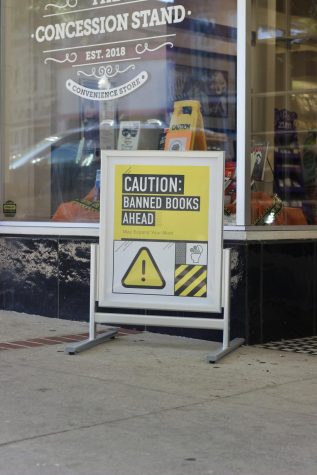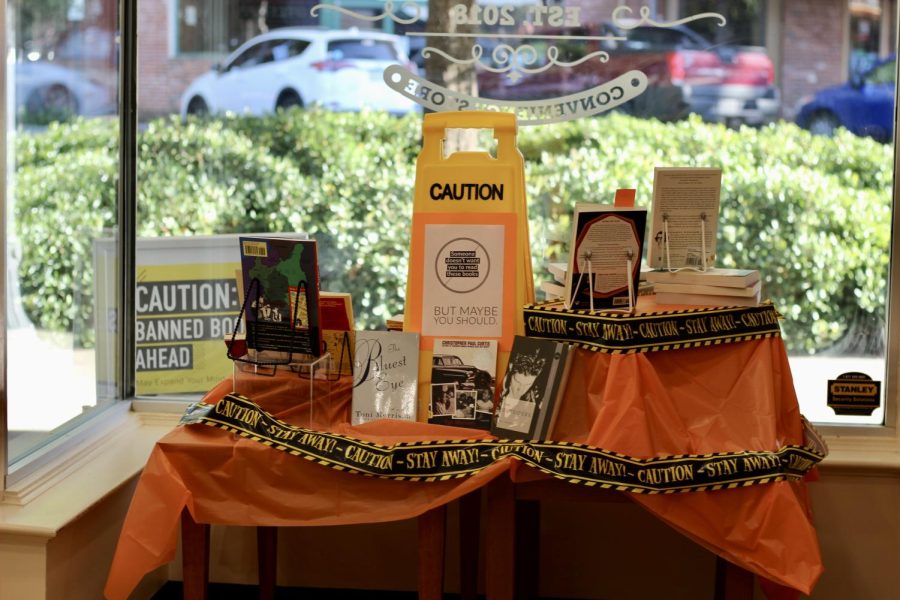GC fights back against book bans
October 5, 2022
The idea of book banning has been around for a long time, starting as a way to censor books that were anti-religion or that objected to the church’s word. Over time, banning books has evolved and allowed more topics that involved sexuality to be scrutinized. Some books that have recently been banned are because of LGBTQ+ characters or themes, involved anti-policing messages or are sexually explicit.
Book banning is something that happens annually and in the last week of September. However, this year this event happened on Sept. 18th through Sept. 24th. This year’s theme was “Books Unite Us. Censorship Divides Us.” In order for a book to be banned, one must submit an official challenge. Parents are the top challengers, followed by librarians and teachers, elected officials then students.
GC is working hard on informing its students about book banning but has yet to experience a banning for themselves in the library. Shaundra Walker, Library Director at GC has never experienced a book ban on a college level in all her 22 years.

“Because we are a college and university, we collect materials on a wide variety of topics,” said Walker. “The majority of our users are adults, professors, and students who are doing research.”
This week helps to show that information should not be withheld from anyone. It allows schools to provide information on these books and give their students and faculty a chance to read it. However, it is not easy for each individual community. What may be acceptable in one place, may be unacceptable in another.
“We have been using our social media to educate people about some of the common reasons why books are banned,” said Walker. “The top books that are banned and Banned Books week is sponsored by the American Library Association and they provide us with a wealth of material and they collect information about books that are banned throughout the United States.”
The American Library Association has been keeping people informed about banned books by having different topics discussed on the days of banned book week, along with having many different sections on the website to provide in-depth knowledge. Some of the books have reoccurring themes of LGBTQ+ and are deemed too sexually explicit for those reading them.
This year, Barnes and Noble at GC created a display in their front window displaying banned books in hopes of bringing awareness to this issue.
“I think we can all find a book where we have some issue with it,” said Sophia Peterson, store manager at Barnes and Noble at GC. “Whether it’s the language or sexual things in a book, I think everybody has their own interpretation of a book and I don’t think its necessarily right to ban them.”
Students at GC don’t agree with book banning and don’t expect it to happen at GC anytime soon. Many students agree that books should not be banned but left up to households to restrict it from their children.
“I feel like banning books goes against freedom of speech,” said Keith DeBrosse, sophomore mass communications major. “I feel like it’s not right to silence people if it’s not hurting people. I think there is much worse stuff that doesn’t get banned. I think it’s silly to ban a kid’s book but I feel like you should leave it up to the parent.”
Book banning is a way to silence the creators of the world and this process isn’t taken lightly by GC students.
“I think it constricts creators and artists,” said Adrienne Cook, sophomore english major. “It makes certain subjects’ taboo. I can’t think of any positive effects of banning books. It all reinforces negative stereotypes about ideas and opinions. It is overall too restricting to artistic integrity.”







